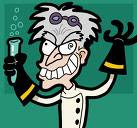Applied physics is a general term for physics research which is intended for a particular use. An applied physics curriculum usually contains a few classes in an applied discipline, like geology or electrical engineering. It usually differs from engineering in that an applied physicist may not be designing something in particular, but rather is using physics or conducting physics research with the aim of developing new technologies or solving a problem.
The approach is similar to that of applied mathematics. Applied physicists can also be interested in the use of physics for scientific research. For instance, people working on accelerator physics might seek to build better particle detectors for research in theoretical physics.
Physics is used heavily in engineering. For example, Statics, a subfield of mechanics, is used in the building of bridges and other structures. The understanding and use of acoustics results in better concert halls; similarly, the use of optics creates better optical devices. An understanding of physics makes for more realistic flight simulators, video games, and movies, and is often critical in forensic investigations.
With the standard consensus that the laws of physics are universal and do not change with time, physics can be used to study things that would ordinarily be mired in uncertainty. For example, in the study of the origin of the Earth, one can reasonably model Earth's mass, temperature, and rate of rotation, over time. It also allows for simulations in engineering which drastically speed up the development of a new technology.
But there is also considerable interdisciplinarity in the physicist's methods, and so many other important fields are influenced by physics: e.g. presently the fields of econophysics plays an important role, as well as sociophysics.
Friday, February 5, 2010
Subscribe to:
Post Comments (Atom)

No comments:
Post a Comment